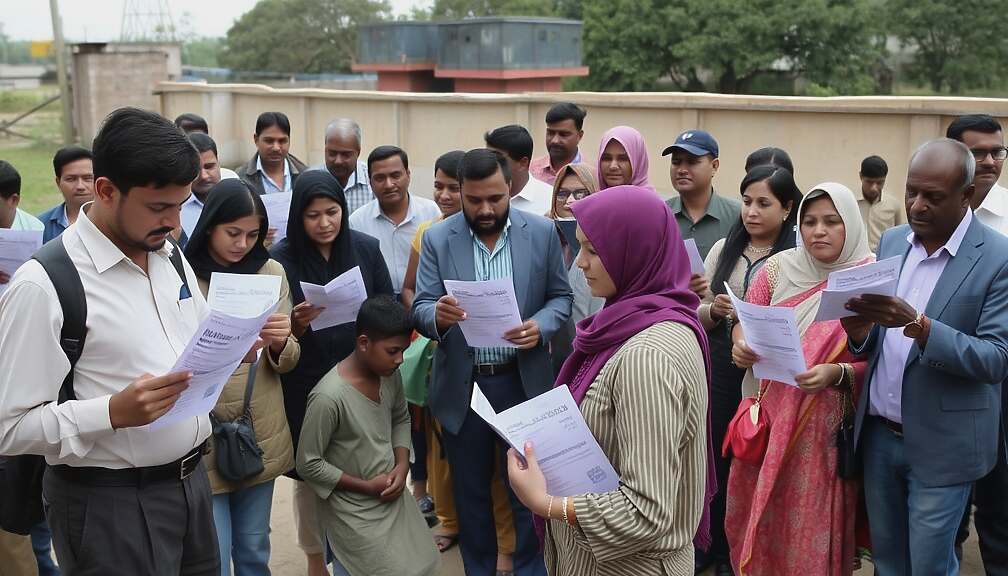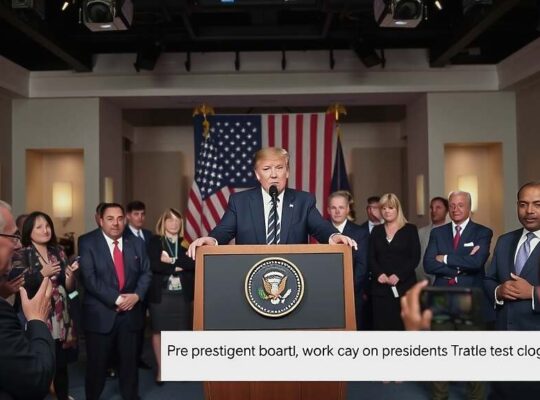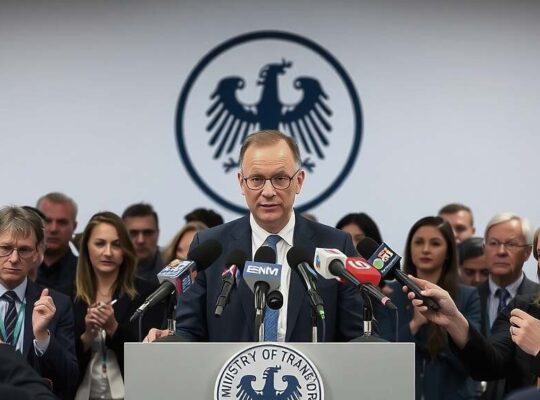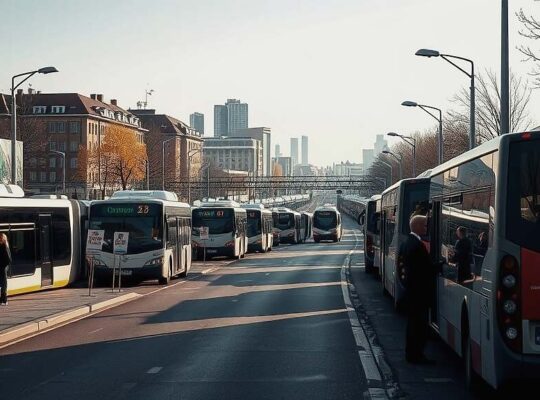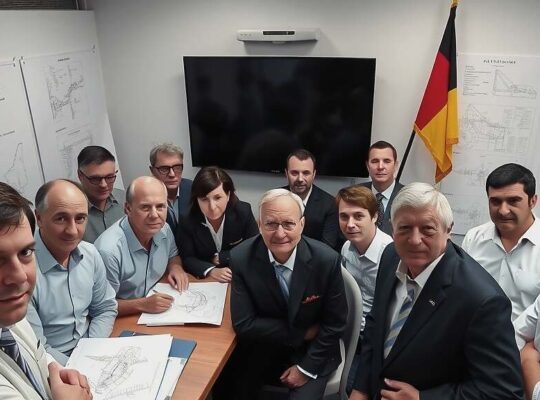A wave of industrial action looms across Germany as Verdi, the country’s largest service sector union, formally submitted demands for a new round of collective bargaining in the municipal public transport sector. The move, encompassing nearly 150 municipal transport companies spanning all 16 federal states, signals a potentially protracted dispute with local authorities over working conditions and wages.
In a strategic maneuver, Verdi has terminated existing framework agreements – known as Flächentarifverträge – governing employment terms in public transport companies across 15 states. This includes the dismantling of specific in-house agreements at the Hamburg public transport operator (HVV) and the Verkehrsbetriebe Hamburg-Holstein (VHH). The decision to terminate these agreements, alongside synchronizing the expiry dates of existing ‘manteltarifverträge’ (umbrella collective agreements), significantly broadens the scope of potential negotiation and indicates the union’s determination to secure substantial improvements. In Brandenburg, Thuringia and Saarland, wage and salary negotiations will be considered alongside working conditions.
“Attractive working conditions are crucial to the future of public transport” stated Christine Behle, Verdi’s deputy chair. The union’s stance highlights a growing recognition within Germany that the sector’s chronic staffing shortages are directly linked to demanding work schedules and inadequate compensation. Verdi is pushing for significant changes including a reduction in weekly working hours, shorter shifts, extended rest periods and increased bonuses for night and weekend work.
The move to renegotiate is particularly critical given the sector’s increasing reliance on the Tariff Agreements for Local Transport (TV-N), which are already subject to state-level variations. While wage development in eight of these TV-N agreements is already linked to the TVöD (Tarifvertrag für den öffentlichen Dienst – collective agreement for the public sector), the union’s actions suggest a dissatisfaction with the current trajectory, indicating a desire to move beyond incremental adjustments.
Critics argue that this ambitious agenda, coupled with simultaneous negotiations across numerous states, could exacerbate existing financial pressures on municipalities already grappling with rising costs and strained budgets. The potential for widespread disruption to local transport networks, particularly in urban areas, underscores the high stakes involved and signals a tense period for both employers and employees as negotiations unfold. The union’s bold strategy suggests a willingness to escalate the dispute to secure what it views as essential improvements for the workforce underpinning Germany’s vital public transport infrastructure.


